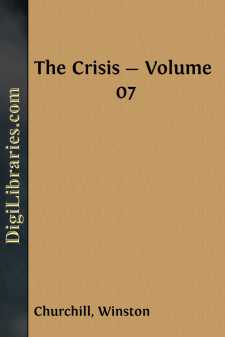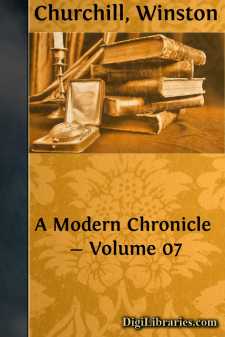Categories
- Antiques & Collectibles 13
- Architecture 36
- Art 48
- Bibles 22
- Biography & Autobiography 813
- Body, Mind & Spirit 142
- Business & Economics 28
- Children's Books 17
- Children's Fiction 14
- Computers 4
- Cooking 94
- Crafts & Hobbies 4
- Drama 346
- Education 46
- Family & Relationships 57
- Fiction 11829
- Games 19
- Gardening 17
- Health & Fitness 34
- History 1377
- House & Home 1
- Humor 147
- Juvenile Fiction 1873
- Juvenile Nonfiction 202
- Language Arts & Disciplines 88
- Law 16
- Literary Collections 686
- Literary Criticism 179
- Mathematics 13
- Medical 41
- Music 40
- Nature 179
- Non-Classifiable 1768
- Performing Arts 7
- Periodicals 1453
- Philosophy 64
- Photography 2
- Poetry 896
- Political Science 203
- Psychology 42
- Reference 154
- Religion 513
- Science 126
- Self-Help 84
- Social Science 81
- Sports & Recreation 34
- Study Aids 3
- Technology & Engineering 59
- Transportation 23
- Travel 463
- True Crime 29
The Crisis - Volume 07
Categories:
Description:
Excerpt
WITH THE ARMIES OF THE WEST
We are at Memphis,—for a while,—and the Christmas season is approaching once more. And yet we must remember that war recognizes no Christmas, nor Sunday, nor holiday. The brown river, excited by rains, whirled seaward between his banks of yellow clay. Now the weather was crisp and cold, now hazy and depressing, and again a downpour. Memphis had never seen such activity. A spirit possessed the place, a restless spirit called William T. Sherman. He prodded Memphis and laid violent hold of her. She groaned, protested, turned over, and woke up, peopled by a new people. When these walked, they ran, and they wore a blue uniform. They spoke rapidly and were impatient. Rain nor heat nor tempest kept them in. And yet they joked, and Memphis laughed (what was left of her), and recognized a bond of fellowship. The General joked, and the Colonels and the Commissary and the doctors, down to the sutlers and teamsters and the salt tars under Porter, who cursed the dishwater Mississippi, and also a man named Eads, who had built the new-fangled iron boxes officially known as gunboats. The like of these had never before been seen in the waters under the earth. The loyal citizens—loyal to the South—had been given permission to leave the city. The General told the assistant quartermaster to hire their houses and slaves for the benefit of the Federal Government. Likewise he laid down certain laws to the Memphis papers defining treason. He gave out his mind freely to that other army of occupation, the army of speculation, that flocked thither with permits to trade in cotton. The speculators gave the Confederates gold, which they needed most, for the bales, which they could not use at all.
The forefathers of some of these gentlemen were in old Egypt under Pharaoh—for whom they could have had no greater respect and fear than their descendants had in New Egypt for Grant or Sherman. Yankees were there likewise in abundance. And a certain acquaintance of ours materially added to his fortune by selling in Boston the cotton which cost him fourteen cents, at thirty cents.
One day the shouting and the swearing and the running to and fro came to a climax. Those floating freaks which were all top and drew nothing, were loaded down to the guards with army stores and animals and wood and men, —men who came from every walk in life.
Whistles bellowed, horses neighed. The gunboats chased hither and thither, and at length the vast processions paddled down the stream with naval precision, under the watchful eyes of a real admiral.
Residents of Memphis from the river's bank watched the pillar of smoke fade to the southward and ruminated on the fate of Vicksburg. The General paced the deck in thought. A little later he wrote to the Commander-in-Chief at Washington, "The valley of the Mississippi is America."
Vicksburg taken, this vast Confederacy would be chopped in two.
Night fell to the music of the paddles, to the scent of the officers' cigars, to the blood-red vomit of the tall stacks and the smoky flame of the torches....












